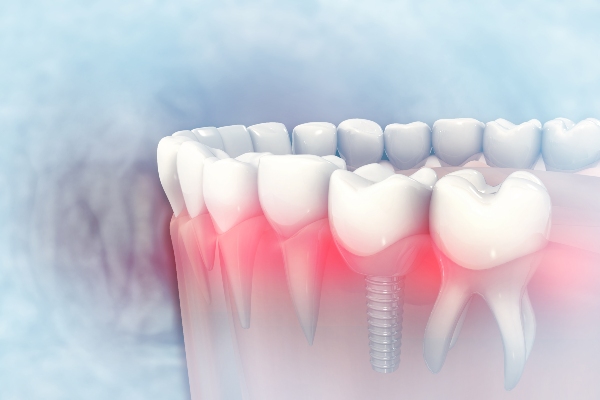 Replacing missing teeth with dental implants can result in a stable and strong bite. It restores the crown and the root. Knowing how this dental replacement system replaces a missing tooth can convince you to set an appointment with your dentist about it. Here are the details about how dental implants can make this happen.
Replacing missing teeth with dental implants can result in a stable and strong bite. It restores the crown and the root. Knowing how this dental replacement system replaces a missing tooth can convince you to set an appointment with your dentist about it. Here are the details about how dental implants can make this happen.
How dental implants help
Tooth loss removes the dental root from the jawbone. This means that the jawbone does not have a stimulant anymore. The body does not receive signals to send nutrients to the jawbone for tissue repair. This leads to jawbone loss. Dental implants prevent this from happening.
The dentist cuts through the gum tissue and drills holes into the patient’s jawbone. Applying the titanium rods into the implant holes will follow. Then, the dentist will close the gum tissue over the rods by stitching it. This can help with the implant site’s healing. Dental implants can replace the lost dental roots that stimulate the jawbone. The stimulation signals the body to send nutrients to the jawbone for tissue repair and prevent jawbone loss.
Tooth loss leaves gaps in the dental arch. These spaces trigger the neighboring teeth to shift. Dental shifting can lead to dental misalignment. This can cause decay and instability in the patient’s bite. It may even develop into jaw pain and headaches.
The restoration
Dental implants are popular sources of support for partial dentures and dental bridges. Each implant replicates a complete dental structure. That is why it looks, functions, and feels like a natural tooth. The titanium rod is the dental root. The dental crown stays on top of the rod by means of an abutment.
The support that dental implants need does not depend on the neighboring teeth. It depends on how the titanium rods merge with the gum tissue and jawbone. A dental implant can function on its own and stand alone. It will not move from its place once the titanium rods become one with the dental components.
The placement
It will take about three to five months for the dental implants to finish the fusion and recovery. This creates a strong base for these restorations. This process is osseointegration. Temporary dental crowns can protect the areas while the titanium rods fuse.
After the complete fusion, connecting the abutments will be next. The dentist will cut through the gum tissue to expose the top of the rods. Then, the abutments will attach to them. These titanium parts will connect the dental crowns to the rods. Stitching the gum tissue around the abutments will help these areas heal.
After about two weeks of healing, the dentist will attach the dental crowns to the abutments. The dentist will use strong dental cement in attaching the dental crowns. This will give the patient a stable and strong bite. Dental implants can last for decades with proper care and maintenance.
Understanding how dental crowns replace missing teeth can motivate you to care for them more
Dental implants are stable and strong dental replacements. They function and look better than temporary dentures. They can also last longer than dental bridges. Working with your dentist can maintain the healthy condition of your dental implants.
Request an appointment or call Sandor Family Dentistry at 732-333-6399 for an appointment in our Freehold office.
Related Posts
Dental implants are effective, long-lasting artificial teeth. Implants are surgically attached to the jawbone to look and function like natural teeth. As a result, patients can chew, talk, and laugh without worrying about dentures slipping. They also improve oral health. This article explores when and why to get implants and the qualifying factors for treatment.Patients…
Dental implants are an effective replacement for missing and damaged teeth. There are, however, some factors that may cause implants to fail. If you have noticed the signs of failing implants — such as severe pain, trouble chewing, and gum inflammation — it is important to consult a dentist to curb the problem. This article…
Dental implants are the most stable dental restorations you can get. The invasive procedure will cut through your gum tissue. The dentist will drill into the jawbone and place titanium rods into the holes. The right kind of care is important to make sure that the implant site is free from infections. Here are the…
